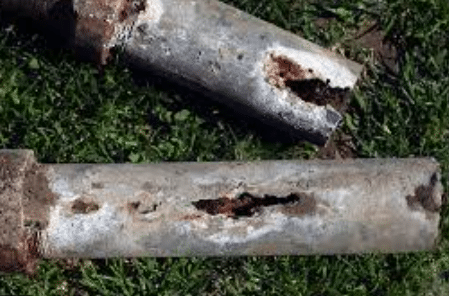How To Treat Galvanized Pipe Corrosion In Denver?
Plumbing systems are susceptible to corrosion. This is because they are constantly exposed to water, which can cause the pipes to rust over time. Galvanized pipes are particularly susceptible to corrosion, as they are made of iron and steel. The galvanizing process actually makes the pipes more vulnerable to corrosion, by creating a thin layer of zinc on the surface of the pipe. This zinc layer protects the pipe from rusting, but it eventually wears away, exposing the iron beneath it to water and oxygen.
There are a number of ways to treat galvanized pipe corrosion. Some of these methods are simple and can be done at home, while others require the help of a professional.
Clean The Pipe Regularly
One of the best ways to prevent corrosion is to keep the pipe clean. This means removing any dirt, debris, or buildup that may be on the surface of the pipe. You can use a brush or a rag to wipe down the pipe, or you can use a pressure washer to remove any stubborn buildup.
Use Corrosion-Resistant Materials
When it comes to treating galvanized pipe corrosion, it’s important to use materials that are resistant to corrosion. This includes using pipes made of stainless steel or copper. These materials are less likely to rust than iron or steel pipes.
Apply A Protective Coating
One way to treat galvanized pipe corrosion is to apply a protective coating to the pipe. This coating will create a barrier between the pipe and water, oxygen, and other materials that can cause corrosion. There are a number of different types of coatings that can be used, including paint, epoxy, and plastic.
Use Galvanized Pipe Repair Kits
If the corrosion is already present on the pipe, you’ll need to use a repair kit to fix it. These kits usually come with a rust-resistant coating that can be applied to the affected areas. Once the coating is in place, it will prevent further corrosion from occurring.
Replace The Pipe
In some cases, the best way to treat galvanized pipe corrosion is to simply replace the pipe. This is usually only necessary if the pipe is severely corroded and is in danger of bursting. If you do need to replace the pipe, be sure to use a corrosion-resistant material, such as stainless steel or copper.
Install A Water Softener
One of the main causes of galvanized pipe corrosion is hard water. This type of water contains high levels of minerals, such as calcium and magnesium. These minerals can build up on the surface of the pipe and cause corrosion. Installing a water softener can help to remove these minerals from the water and prevent corrosion.
Use An Acidic Cleaner
If the pipe is only mildly corroded, you may be able to clean it with an acidic cleaner. These cleaners can help to remove the buildup of minerals and other materials that can cause corrosion. Be sure to follow the directions on the cleaner carefully, as using too much acid can damage the pipe.
Conclusion
Galvanized pipe corrosion can be a serious problem, but it can be treated with a number of different methods. Some of these methods, such as cleaning the pipe and using corrosion-resistant materials, can be done on your own. For more information, contact Drain Pros Plumbing Denver at (720) 664-8988.

